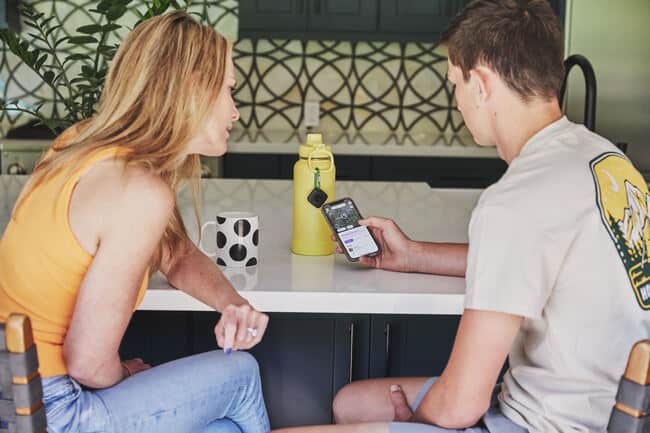Parents endorse the use of smartphones by children for safety and assurance, provided appropriate guidelines are established. Prohibitions on school use and internet access limitations are among the foremost mobile regulations to promote safe and beneficial mobile phone practices. Meanwhile, the issue of texting at the dining table continues to stir debate nationwide!
A study conducted by the family locator application and safety membership service Life360 has unveiled the principal advantages perceived by British parents of children aged 13 and below from owning a mobile device, along with the measures they implement to foster secure and healthy smartphone usage habits.
The research underscores that in an era where families are becoming more digitally inclined, a significant number are adopting technology to gain comfort in contemporary parenting, particularly in the ease of monitoring their children’s locations.
Findings indicate that nearly two-thirds (64%) of parents are of the opinion that owning a smartphone can have a favourable effect on their children’s education and learning, while a substantial 67% consider safety and security as the paramount reason for equipping their offspring with a mobile device, overshadowing other aspects such as convenience and social interactions. The consensus among parents is that children should possess a phone by the age of 13.
Principal mobile device regulations set by parents encompass forbidding use during school hours, imposing a cap on the total daily usage, and disallowing nighttime usage. Additional widespread mobile phone regulations include app restrictions, internet browsing limitations, and constraints on the locations within the home where the device may be used (for example, only in the family room, not in bedrooms).
Kirsty Ketley, a parenting expert commissioned by Life360 to devise strategies for parents on instilling positive smartphone habits in children and teenagers, stated: “Responsible use of phones can be essential to support today’s parenting, from coordinating busy family schedules to giving peace of mind that kids are safe when not physically with them. It’s important that parents set clear rules and guidance for their families and especially for their kids when they get a smartphone as this encourages safe habits that they benefit from right into adulthood.
“Of course, children learn from their parents, so the same rules should apply to every member of the family who owns a phone when it comes to when you use the phone, how and where. Setting the right example will ensure the right behaviour.”
The study further discloses that opinions are split on the appropriateness of mobile phone use at the dining table, with half (50%) of the parents of children who own smartphones imposing restrictions on its use during meals.
The implementation of parental controls on internet content also features prominently among the rules for children’s mobile phone use, with 61% of participants indicating they oversee the websites their children visit, and 38% reviewing their text messages. When inquired about the first category of app their child installed on their smartphone, gaming applications were the most common response (45%), followed by location-sharing applications (18%).
Among parents whose children possess smartphones, a vast majority find solace in actively utilising location-sharing technology, with many concurring that it significantly increases their willingness to permit their children to undertake significant activities like commuting to and from school (86%) and visiting urban centres or shopping malls with friends (86%) without supervision.
David Rice, International GM and CSO for Life360, remarked: “We commissioned this research to understand real-life concerns of UK parents and the steps they take to feel reassured about their children’s safety. The findings reinforce the fact that using location-sharing apps can provide families with a sense of security about each other’s safety and whereabouts whilst opening lines of communication, improving trust and allowing kids more freedom.
“It’s beneficial for tweens and teens to have access to smartphones as this technology often becomes an integral part of day-to-day family life across multiple generations and vital in rare emergency situations.”


